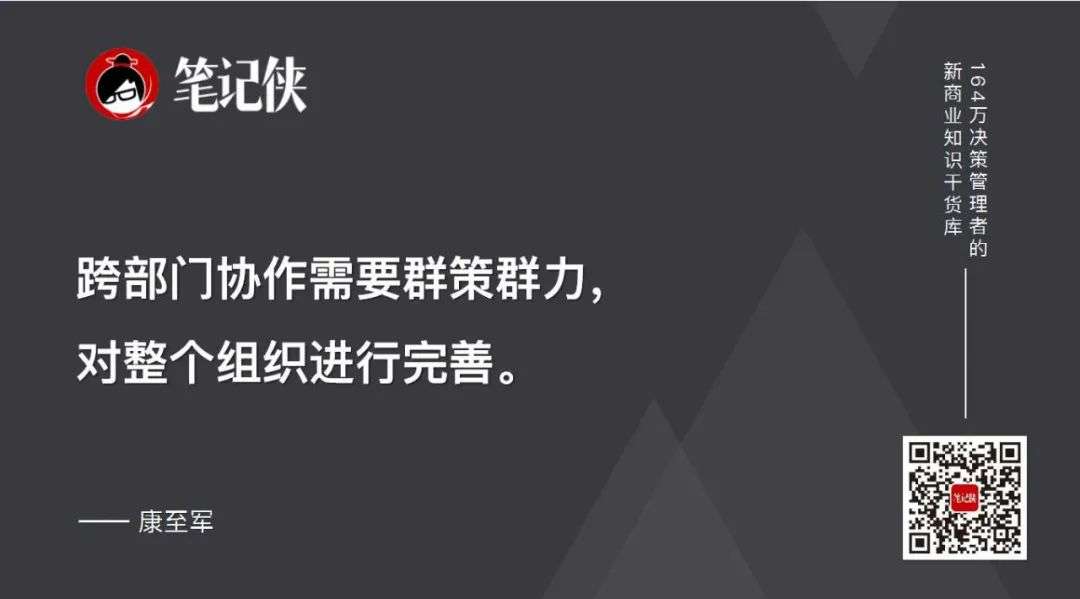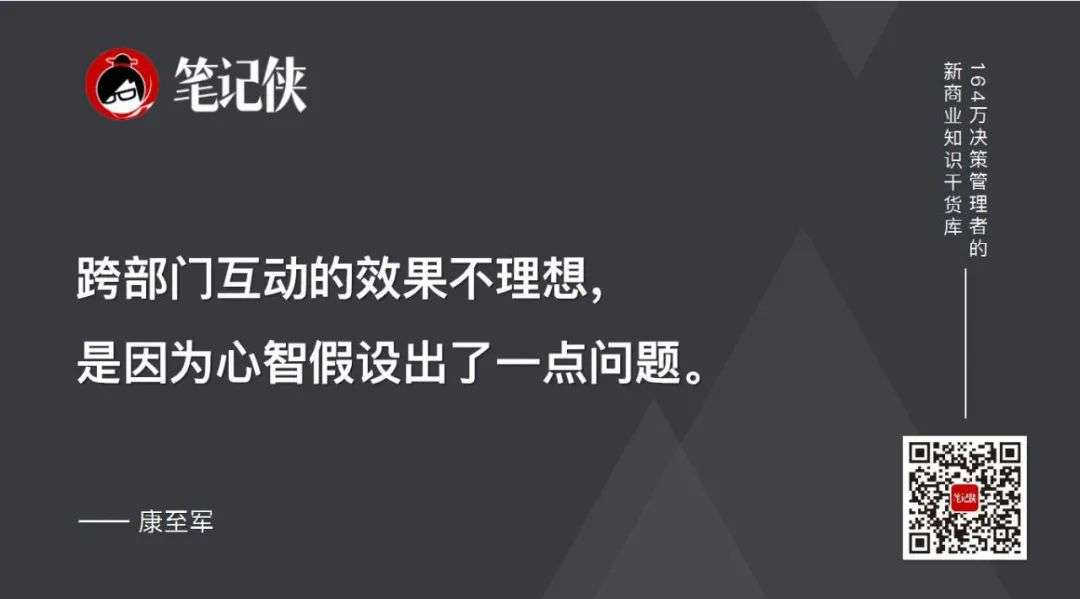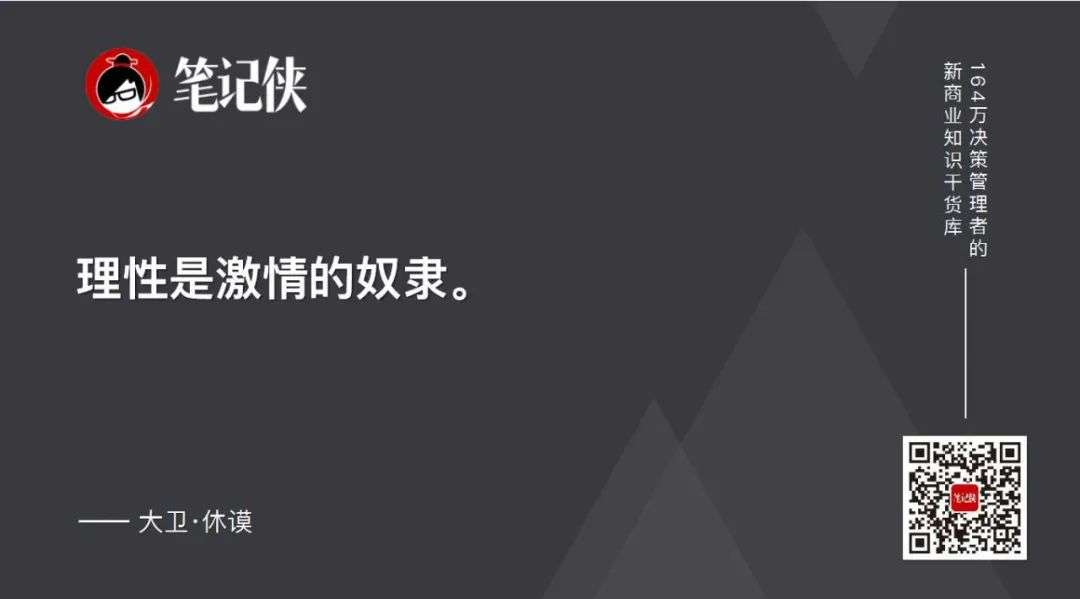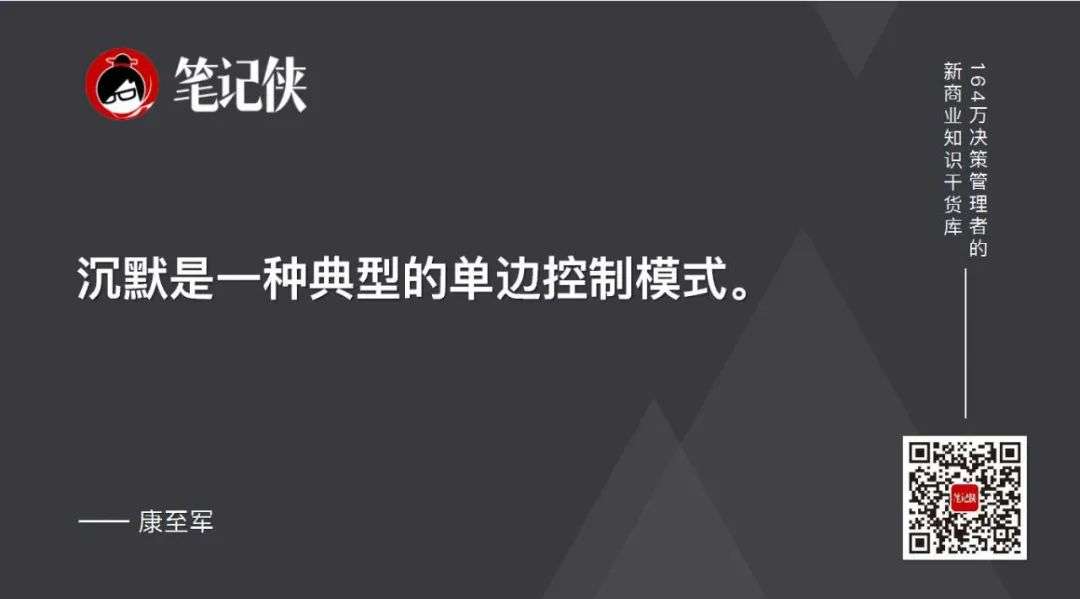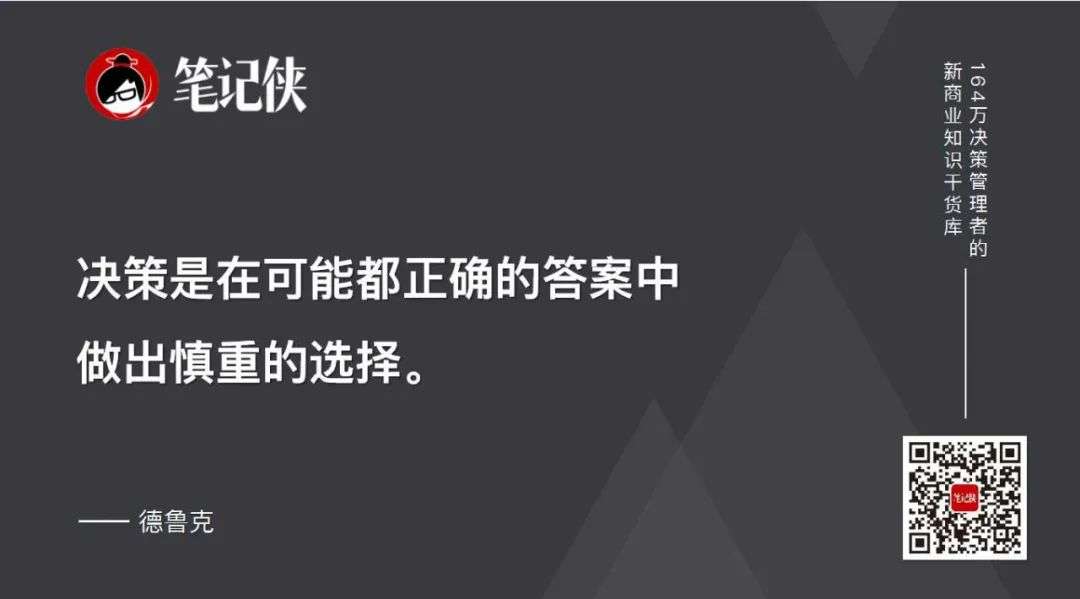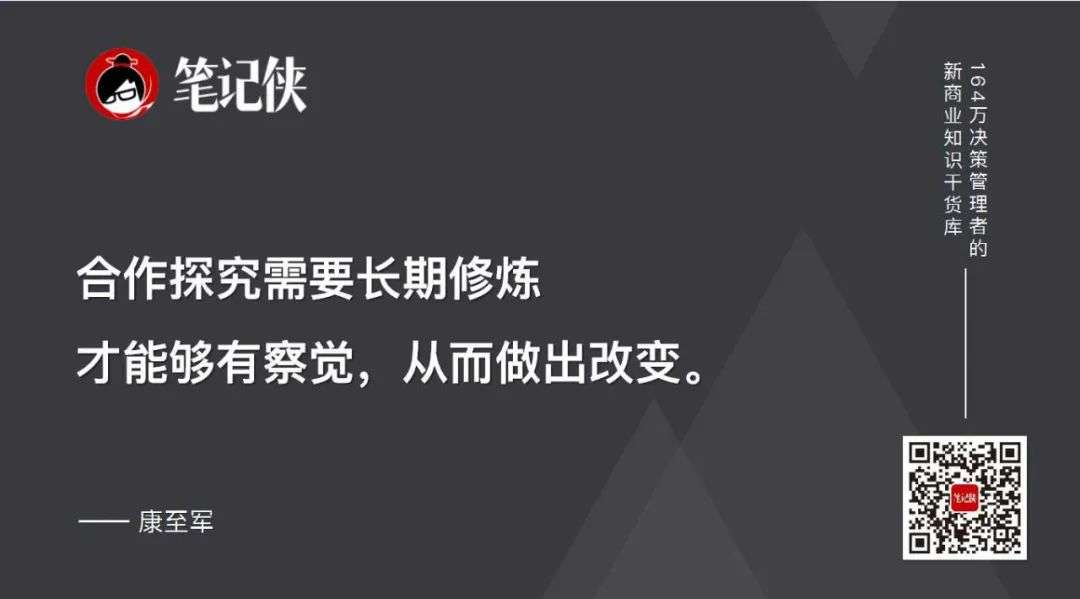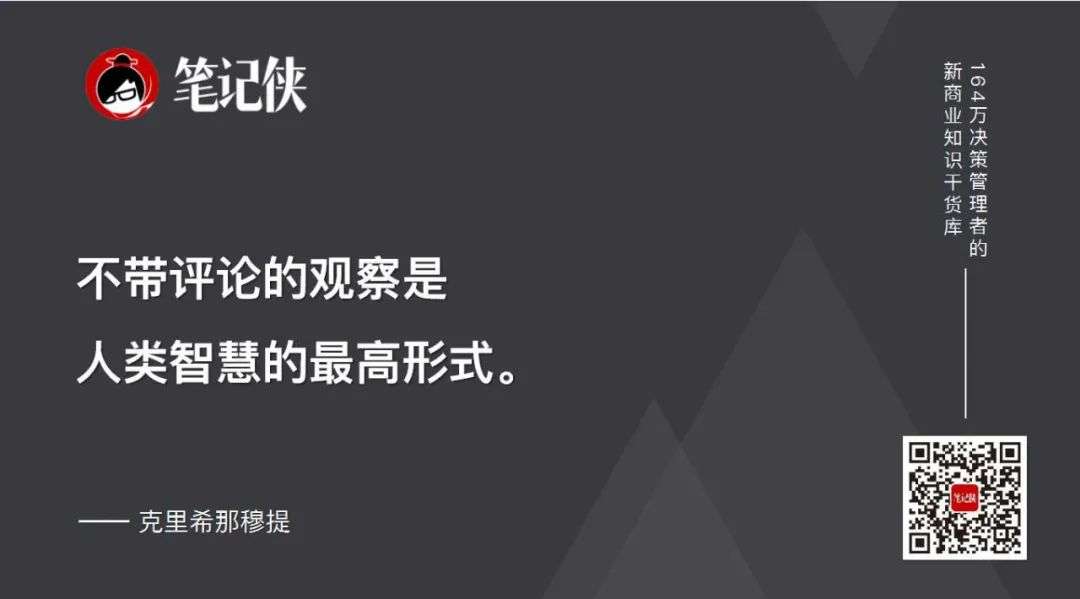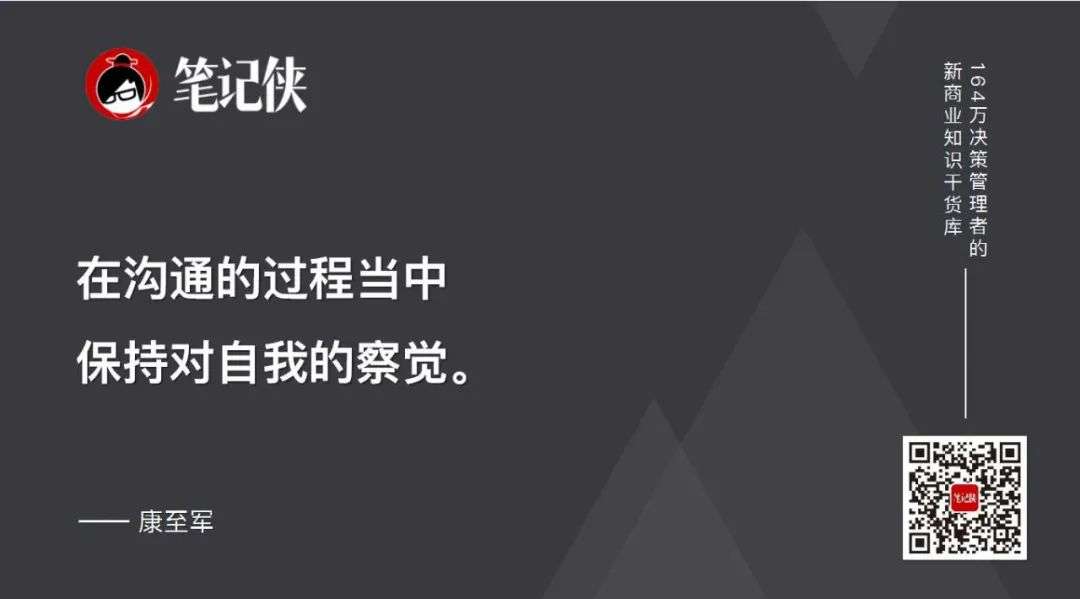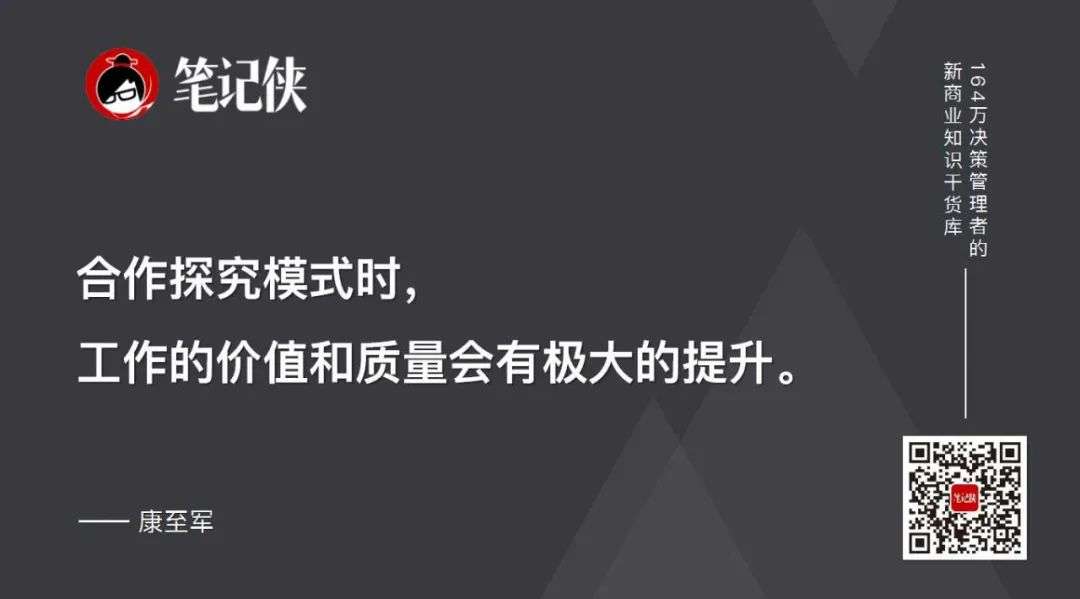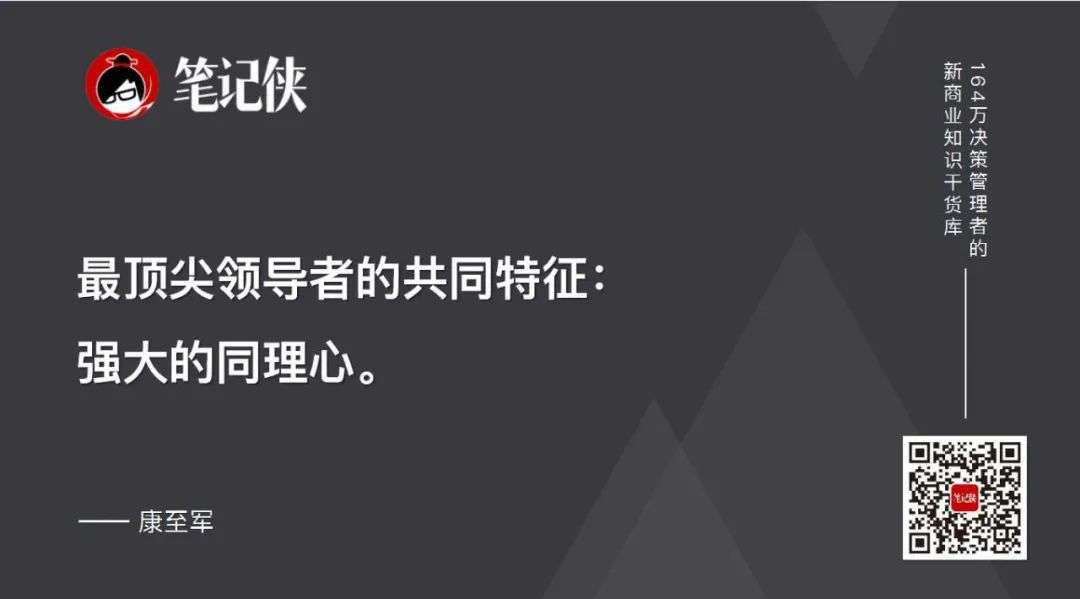Employees are no longer your subordinates, they have become equal partners.
Editor’s note: This article href=”https://mp.weixin.qq.com/s/7eThgN3XlzJB1LBoliwXIw”> “notes Man” from the micro-channel public number , Author: Kang Zhijun, reviewer: Zhiyong, editor on duty: Lord Grim.
“Update Night Questions”, for more New School student exclusive Q&A live column.
CEO Ke Zhou screens the most anxious questions of decision-making managers, directly asks the mentor, analyzes, changes and improves the behavior and results of the company’s scientific decision-making, organizational development, and marketing growth. It is launched every Wednesday at 8 o’clock in the evening.
Guests of this live broadcast: Kang Zhijun, talent management and organizational development expert, founder of HR Transformation Breakthrough Center, the founder of the public account “12 Druckers”.
Inter-departmental collaboration is a practical problem faced by almost all enterprises. The long-term development of an enterprise is nothing more than facing two challenges: the first is external adaptation, and the second is internal coordination.
The biggest obstacle to cross-departmental collaboration is at the organizational level. For example, the responsibility interface is not clear enough; everyone does not have shared missions and goals; some cross-departmental processes need to be improved; assessment and incentive mechanisms may also have some challenges.
Dr. Deming, a master of management, has a sentence that affects the entire Japanese corporate world-employees work in the system, and managers work on the system.
This means that if we want to solve the problem of departmental coordination, we actually need to improve the organization system, rather than point the finger at individual employees.
So, don’t expect to organize a training to talk about some skills to improve cross-departmental collaboration and communication to solve this problem. Cross-departmental collaboration requires everyone to work together to improve the entire organization.
What we are discussing today is not about inter-departmental collaboration within the organization. It is our cooperative thinking and ability as individuals.
In his later years, Drucker talked about a fact:
He said to all managers that the traditional relationship between superiors and superiors has disappeared, and employees are no longer your subordinates, and he has become an equal partner.
Today, when facing outstanding talents, including those born in the 90s and 95s, managers have a very strong feeling that traditional management methods have encountered great challenges.
Behind this is because the relationship between managers and subordinates has changed, and the relationship of equal partners has refreshed our cognition and thinking.
In addition, today everyone at work may become the temporary person in charge of a certain task. It is necessary to integrate many people to promote one thing. These people are not under our direct control, but we need to win their Only with cooperation can this matter be completed.
So, these all require us to have a stronger ability to cooperate, how to win the cooperation and follow of others, and do one thing well together.
In fact, even without such challenges, it is still difficult for us to reach cooperation with others. It will be a huge challenge to enable everyone to discuss some issues in depth, effectively resolve differences and reach consensus, including building trust.
Based on these challenges, where is the real crux behind it? Are there any leverage points that we can leverage to make our cooperation and collaboration a fundamental improvement?
I. Reasons for difficulties in horizontal communication and coordination
In reality, there is often such a phenomenon: Colleagues who are usually very kind and reasonable are not easy to establish good cooperative relations when they need to communicate and collaborate horizontally at work.
This phenomenon illustrates many of the communication skills we see today, such as looking at the other person with a smile, nodding and repeating his words, etc. These methods are actually not the real key to horizontal communication.
Many times, the effect of our interactions with others is not ideal, because some assumptions in our minds have something wrong.
Why are some assumptions underlying our minds so critical? For example, many managers say that the post-95s generation is too difficult to manage and there is no way to organize them.
In-depth analysis found that the reason why many managers feel that the post-95s are not easy to manage is because they want to manage the post-95s in the way they are more familiar and good at.
One of the most common assumptions is that people will believe in the power of rewards and punishments, but it doesn’t seem to work well after the post-95s.
In the past, rewards and punishments were defaulted as a very important means of driving employees, but today this assumption no longer exists.
Today, when solving some management problems, a very important starting point is some assumptions in your heart.
Regarding the hypothetical question, you need to think about three questions carefully:
1. Do you think you can look at things objectively?
2. Do you think you can see the facts objectively?
3. Do you think you can think and act more rationally?
Survey data shows that 80~90% of people give themselves a relatively positive answer to these three questions. They feel that they are such a person, who can look at things objectively and see facts more easily. In some cases, it is more rational and reasonable.
The first point: Many times we feel that we can look at things objectively, but in fact we can’t.
The fact that we usually look at things is not a process of objective observation, but a process of actively screening information. For example:
When the company is recruiting at school, if the interviewer has a very good academic performance, and he thinks that good academic performance is particularly important to a person’s logical thinking ability, he will involuntarily look at the candidate when he gets his resume Academic performance.
Similarly, an interviewer who has been a student union cadre in the student union and feels that this kind of practical experience is very important to a person’s leadership and organization and coordination ability. When he sees his resume, he will involuntarily focus on the application The social practical experience of the author.
So, we always take it for granted that we can see things objectively, but in fact we can’t. We will inevitably filter limited information based on our own values, past experiences and preferences.
The second point: Do we think we can see the facts objectively? Of course, we can see some information and snippets, but at that moment, we will put some of our own guesses Photo Plus.
If an employee you don’t like is late twice this week, you can’t help but feel that this guy’s sense of responsibility has fallen again.
The fact is that he was late twice, but at that moment, you will definitely add your strong emotions and turn it into a judgment: his sense of responsibility has declined.
So, we take it for granted that we can see the facts, but the actual situation is that at that moment, we are all directors, and we will process the information of this clip into our own judgment, adding a lot of speculation, the key is It’s because we didn’t think it was a speculation, but a fact.
The third point: I can think and act more rationally. Of course, we all think this way. In fact, we are all emotionally driven, and we are controlled by emotions in most cases.
That’s why the great philosopher Hume said that reason is the slave of passion. For example:
There is a drunk who likes to drink too much. He can’t persuade him no matter what. He has a friend who can’t help it. He took a bowl, poured a bowl of wine with a high alcohol content, and threw a small bug in it. This little bug is dead. The friend asked proudly: “What have you learned?” The drunkard said, “Drinking can kill bacteria.”
This shows that a person often transforms the information he sees into a point of view that suits his preferences. Many times we are driven by our own emotions and preferences, not by reason.
Our own daily patterns are actually biased, and some of our underlying assumptions may not match the facts.
Aware of this, adjust our assumptions to better face the facts, and many problems can be solved.
Second, be wary of communication falling into unilateral control mode
In the process of communication and negotiation, many conflicts are meaningless. The crux of this situation is that some of our assumptions about ourselves have been biased.
When there is a conflict in the process of interacting with other people, we will all enter a mode of unilateral control.
For example, at home, if a kid is disobedient and does something, you will sternly train him; oneA subordinate’s work performance is lower than your expectations, and you rant and ask him not to take an example; the work flow goes to other departments and should reply to you within one week, but after three weeks of delay, they did not take the initiative to reply to you. Do you think this The guy must be arguing with other departments and not with him. These are very common scenarios.
In these cases, 98% of people will enter the unilateral control mode. The unilateral control mode is to strongly accuse the other party, or ask the other party to do things according to their own ideas.
There are 4 hidden assumptions behind the unilateral control model, which almost all of us have:
1. I know the whole picture, you don’t.
2. I was right, but you were wrong.
3. My motive is very kind, but your motive is not necessarily.
4. I am definitely not the initiator of the problem.
Don’t think that silence is a good character. In fact, silence is also a typical unilateral control mode.
The silent person believes that there is no basis for dialogue with the other party, and that he has mastered the truth. There is not much information to continue communicating with the other party. This is a very typical unilateral control mode.
What kind of misunderstandings will we fall into with the four assumptions of unilateral control?
The first hypothesis: I understand the whole picture, but you don’t.
There is an idiom called the blind touch the elephant. The blind touch the elephant reminds us to look at the problem comprehensively and not to make mistakes of the blind. When we touch our ears, we call the elephant a fan, and when we touch the legs, we call the elephant a pillar.
But today, the blind touching the elephant is not a reminder to avoid making mistakes, but reveals a bleak truth: in almost all fields, even the best field, our understanding must be limited.
We need to see the complexity of this world, and see that many fields will have a lot of things we don’t understand.
If we realize this, we will become more humble, willing to calm down and listen to the opinions of people who disagree with us, and what information we don’t know is worth knowing .
Second hypothesis: I was right, and you were wrong.
The most important reason for this problem is that under this situation, both sides of the conversation have this idea in their hearts. I am right, and you are wrong.
In the end, both parties did not turn the conversation into a process of mutual inquiry and communication, but into a one-way persuasionthe process of.
When Mr. Drucker talked about the fifth habit in “Effective Managers”, he said that the decision is not to find the only thingOne correct correct answer, the decision is to make a careful choice among the possible correct answers.
The legendary CEO of General Motors, Sloan, has always adhered to this decision-making principle: If there is no disagreement, no decision will be made.
How can there be only one opinion for such a complicated matter? If the team quickly unifies one opinion, it can only show one problem: the team’s way of thinking is already very rigid.
Without diversified thinking, it is impossible for us to explore all aspects of a complex matter, nor to make a high-quality decision.
We have to admit that the world is complicated, that many problems, especially management problems, have no single correct answer, and that every viewpoint has its advantages and disadvantages.
Under this situation, both parties can enter a state of listening, beyond simple right and wrong, and can find a better solution in the discussion.
So, the difference is precisely the opportunity to learn. It is precisely because we have some collisions from different sides that we may have a deeper understanding of a problem.
The second assumption is a particularly big challenge. Part of this challenge comes from our education.
We have been implanted with a hypothesis since we were young. There are objective laws that apply everywhere in this world. In our daily study, we also assume that every question has a standard answer. The result of training is to be good at accepting answers instead of making opinions.
Although our teachers also talk about harmony and difference, in fact, we have to learn to accept diverse views. This is a very long and even painful process.
The third assumption:My motive is very kind, but your motive is not necessarily.
Each of us will overestimate ourselves. When we encounter conflicts, we will beautify our motives on the one hand, and we will inevitably think bad things about the other side on the other.
As mentioned above, when we capture a piece of information, we will process it in an instant and turn it into a judgment. And when there is a conflict, this judgment must be negative.
Under the cooperative exploration mode, the third assumption becomes that although we are different, it does not mean that the motivation of both parties is bad. Maybe the other party wants to express such a point of view based on his past experience. Both parties will conduct in-depth exploration.
But it is very difficult to do this. Because our momentary processing of other people’s motives is an inevitable process. Cooperative inquiry requires long-term practice to be aware and make changes.
Fourth hypothesis: I am not the initiator of the problem.
Many managers usually think that poor performance of employees is a personal problem of their employees, but they usually do not realize that a considerable part of this is related to the lack of their own management style.
If the fourth hypothesis becomes that I may also be the initiator of the problem, we must sit down and take a good look at the ins and outs of this matter, take a look at the missing parts in the middle, and face the future, how we will each do it Adjust so that you can communicate effectively.
Three, how to set the one-way control mode
Switch to cooperative exploration mode?
The reason why our interaction has problems, the entire communication is deadlocked, or even turned into a state of hostility, a considerable part of the reason is that each of us will inevitably fall into unilateral control after facing a conflict. Under the mode.
To switch the one-way control mode to the cooperative exploration mode, we must adjust our assumptions:
1. The information I know must be very limited, and the other party must have some facts and information that I did not know.
2. There is no absolute right or wrong. We have differences that show that gentlemen are harmonious but different. It is a good opportunity to discuss and learn from each other.
3. My motive is definitely not a problem. Although the other person’s point of view is different from mine, it does not mean that the other person’s motive has a problem.People and things are completely integrated.
4. Many problems are influencing and interacting with each other, and I may also be the initiator of the problem.
When we are willing to truly accept these assumptions and enter the cooperative exploration mode, we will find that a considerable part of the conflict will be resolved.
How to adjust your behavior in specific horizontal communication to achieve a cooperative exploration mode? I have four suggestions:
First suggestion: Be able to distinguish facts from opinions.
The Indian philosopher Krishnamurti once said that observation without comment is the highest form of human intelligence. In the process of interaction, you must be able to truly distinguish between facts and opinions, use facts to speak, rather than shroud your strong emotions, and use some very intense emotional views to try to convince the other party.
In this way, you can express your opinions more gently and firmly without triggering strong emotional opposition from the other party.
Second suggestion: Don’t blame, but express your feelings.
Emotions themselves must also have a better way of expressing. We usually have a very common assumption that emotions can hurt others, hurting others and hurting ourselves. So when we communicate, we try to be rational and don’t express our emotions. This idea is wrong.
Emotion is a very important factor in communication, and emotion has a characteristic: it will not leave the scene completely. It is like a snake under the carpet. If you push it down from the carpet, it must emerge from other places.
If you drive emotions out of the communication link, it will definitely return to the scene, and usually in a more destructive way.
So when communicating, first do not suppress emotions, and at the same time, do not make a mistake and turn emotions into accusations, but express your feelings clearly.
The third suggestion: During the conversation, always keep in mind the purpose of the communication.
Communication has three common goals:
First, you must make your own ideas clear so that the other party can understand, and the information between the two parties is more symmetrical.
Second, the two sides maintain equal status, understand each other’s feelings, care for and respect each other.
Third, the two parties work together to solve a problem.
Before communicating, you must be clear about the goal of the communication, whether you want the other party to propose some clear solutions, or you want to understand the reason why the two parties did not cooperate well, or let the other party understand the causeBecause I didn’t cooperate with our department, I got into a very difficult situation.
The goal must be clear, and the communication process must focus on the goal. If the communication process is led by emotions and the final goal is gone, there will definitely not be a good communication result.
The fourth suggestion: Maintain self-awareness during the communication process.
In a face-to-face conversation with a person, a sentence the other person said may contain some of his experience in the past few years or even his entire life. It is not a whim to throw out such a point of view. At this time, we need to calm down and think about what we want to say.
Four. Cooperative exploration mode
What it means to our work
There is a saying in the Bible: Why do you see thorns in your brother’s eyes, but don’t want to have beams in your eyes?
The first question we should think about is: Do I usually have an inevitable unilateral control mode? Many company management will say that our pace is very fast, and sometimes we have to give orders and have to force.
At work, focusing on efficiency is indeed a normal state of ours, but when we have such an idea, we have to ask ourselves whether it is because we don’t want to get out of our comfort zone and emphasize that this model has limitations.
Of course, the cooperative exploration mode itself does have its application scenarios. When you manage a group of smart people, especially a group of young smart people, when your subordinate team gets bigger and bigger, you will find The efficiency of the unilateral control mode is dropping sharply.
In addition, during work, if we finish the tasks assigned by the company, it doesn’t matter whether the model is adjusted or not. Although we enter the cooperative exploration mode and the communication quality of the entire team improves, many things will definitely be done better.
If we just want to complete the company’s tasks and goals we undertake, it is true that the model does not change, and there is not such a strong motivation. And if we want to gain more from our work, adjustment becomes very valuable.
We have to think about a question, what do I really want to get at work? Is it just an income? Certainly not, everyone will have higher pursuits in their hearts.
We spend our prime time at work every day. In addition to earning income, we also hope to have more meaningful relationships and hope to be able to workSelf-improvement and self-inquiry. When we enter the cooperative exploration mode, the value and quality of the entire work will be greatly improved.
Leading Workshop The article by Professor Xiao Zhixing, the founder of “Exam-oriented education is how to stifle children’s entrepreneurial spirit And leadership? “As mentioned in the article, many entrepreneurs with particularly good academic performance are relatively weak in self-awareness, empathy, and interpersonal relationship building. These capabilities are essential for us to build an organization or build a team.
Exam-oriented education has caused us a lot of harm in many ways. However, as long as we want to change, it will never be too late. Every moment is the best moment.
We learn to be humble. When communicating, listen to the information that others have; when interacting, show empathy; when communicating, we can focus on goals. There will be many subtle changes, but the resulting changes are fundamental.
Fifth, the importance of empathy
The top leaders have a particularly important common characteristic: strong empathy. Their strong empathy is often beyond the reach of many ordinary managers and leaders.
Satya Nadella led Microsoft to achieve a very incredible process of renaissance. As an internally promoted CEO, he can drastically change and bring Microsoft back to life. It is a very remarkable thing.
Bill Gates’s biggest evaluation of him is that Satya Nadella has a particularly big advantage: strong empathy.
Nadella’s empathy comes from two very key experiences:
When Nadella first arrived at Microsoft to apply for a job, the interviewer asked him a question: “If you see an abandoned baby on the side of the road, what would you do?” Nadella said: “It’s very simple And call 911.” The interviewer said to him at the end of the interview: “Sir, let me give you a suggestion. If you really see an abandoned baby on the side of the road, the first thing you should do is walk over and pick him up. “He felt very touched.
One of Nadella’s son was born with a disability, and he is a Buddhist. These things are combined. Nadella believes that he has a very strong empathy, and he can see it every time he communicates with others. The other party, whether it is an internal employee or an external customer, wants to be able to truly listen to what they are saying, and have more communication and interaction with them, so that everyone can have more consensus.
Each one of us may face a major practice: today’s society makes our lives gradually become mechanical and numb, day after day, year after year, we are running on a track, this time Whether we can still see the people around us, even our relatives, these are very real questions before us.
Facing the future, whether you are a leader in the workplace or a member of a family at home, empathy is a very important quality, and it should be a basic quality.
